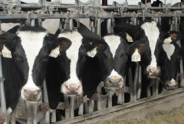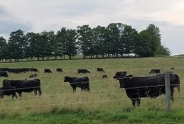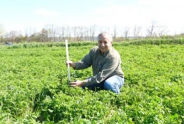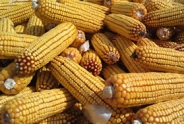Beef x Dairy Workshop - Postponed to Winter time!
Event Details
Date
April 27, 2022
November 23, 2022
Host
Southwest New York Dairy, Livestock and Field Crops ProgramCamila Lage
607-422-6788
email Camila Lage
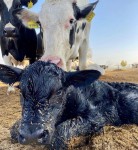
Given the challenging conditions within the dairy industry today, dairy farmers are seeking solutions to enhance their bottom lines. Replacement animals typically account for 15 to 20 percent of milk production costs, but advancements in reproductive management on many farms resulted on an oversupply of dairy replacement heifers relative to anticipated herd needs, which has contributed to economic strain for many dairies. Male dairy calves, and about one third of dairy heifers, are sold as calves at a steep discount compared to traditional beef calves because of lower efficiency and yield. In today's market, dairy calves may sell for $0-$80 while crossbred calves can sell for $100-$330. For dairies of all sizes, selectively breeding some dairy cattle to beef bulls via artificial insemination represents a potential increase in gross profits. Small, relatively inexpensive changes in management can have the potential to make large impacts for the dairy farmer, the beef market, and for local communities.
An increase of quality crossbred calves in the marketplace can benefit beef farmers because they grow more similarly to pure beef animals, and more efficiently than pure dairy calves. Making sure crossbred calves are treated optimally from birth provides higher quality young stock for farms that raise and finish beef. Crossbred cattle tend to grade better than pure dairy animals, resulting in high quality cuts for the consumer market while requiring less feed to get to marketable size than pure dairy animals. This reduces input costs as well as the environmental impact per pound of beef produced. Through the use of this technology, profits for both dairy and beef producers can increase, and more beef can be made available to communities in our region.
Our objective is to enhance the knowledge of beef and dairy producers to help 1) Dairy farmers proactively manage their cow and heifer inventories to increase the genetic potential of replacement heifers and the income from calves not used for herd replacement, 2) Beef farmers learn what makes a good crossbred calf and that there is potential for crossbred animals in the beef herd, and 3) Connect dairy and beef farmers so they can work together to produce a healthy and efficient calf that will create value for the whole beef supply chain.
Program Topics
- Economics of Adopting Beef x Dairy on your Herd
- Make the Most out of Beef x Dairy in your Herd
- Setting up your Calves for Success
- Assuring the Market Value of Crossbred Calves
- Marketing your Finished Beef x Dairy Animals
- Roundtable Discussion
When: Postponed until winter time!
Upcoming Events
Labor Roadshow IX
December 1, 2025
December 9 - December 10, 2025December 17 - December 18, 2025December 22, 2025
In-person and online events to keep NY's agricultural employers informed and prepared for today's labor challenges.
Inspired by Annie's: How to Be a Strong Woman Farm Manager
December 10, 2025
December 17, 2025
Free webinars geared towards women who own or operate a farm in NYS.
2026 Dairy Day
January 13, 2026 : Dairy Day - Hamilton
Hamilton, NY
Lunch included
January 14, 2026 : Dairy Day - Ballston Spa
Ballston Spa, NY
Lunch included
Announcements
Statewide Field Crop Pathology Needs Assessment Survey
Your input is wanted for identifying priorities!Sign Up for Our Weekly E-Newsletter
We send out a bi-weekly e-newsletter that has announcements, upcoming programs, and opportunities for you! Registration is quick, easy, and free. Click here to sign up today!Farmers Can Join MeatSuite For Free!
MeatSuite.com is a free resource provided by Cornell University where NY meat farmers can create a farm profile and list their bulk (wholes, halves, quarters) and bundled (i.e. Grilling Bundle) meat products.Why should farmers join?
1. It's free and easy!
2. Connect with more local customers. In the past year the MeatSuite.com farm directory had 8,300 visits from New York consumers. Farm profiles get as many as 25 views per month from potential local customers. We also spotlight MeatSuite farms on social media and bring attention and purchases to farms through highlights and giveaways.
How do I join?
Farmers can visit https://www.meatsuite.com/farmers/ to create a free farm profile. You must list at least one product for your farm's profile to go live. You'll also have access to Cornell's free Meat Price Calculator, a helpful tool for pricing your meat to make a profit.
While you're on MeatSuite, check out the "Creating Consumer-Friendly Bulk Meats" publication on the log-in page. It has tips on how to create bulk meat products that are easier for first-time buyers to say "yes" to.
If you have any questions as you create your farm profile or products, we're here to help! Please email Matt LeRoux at mnl28@cornell.edu.

